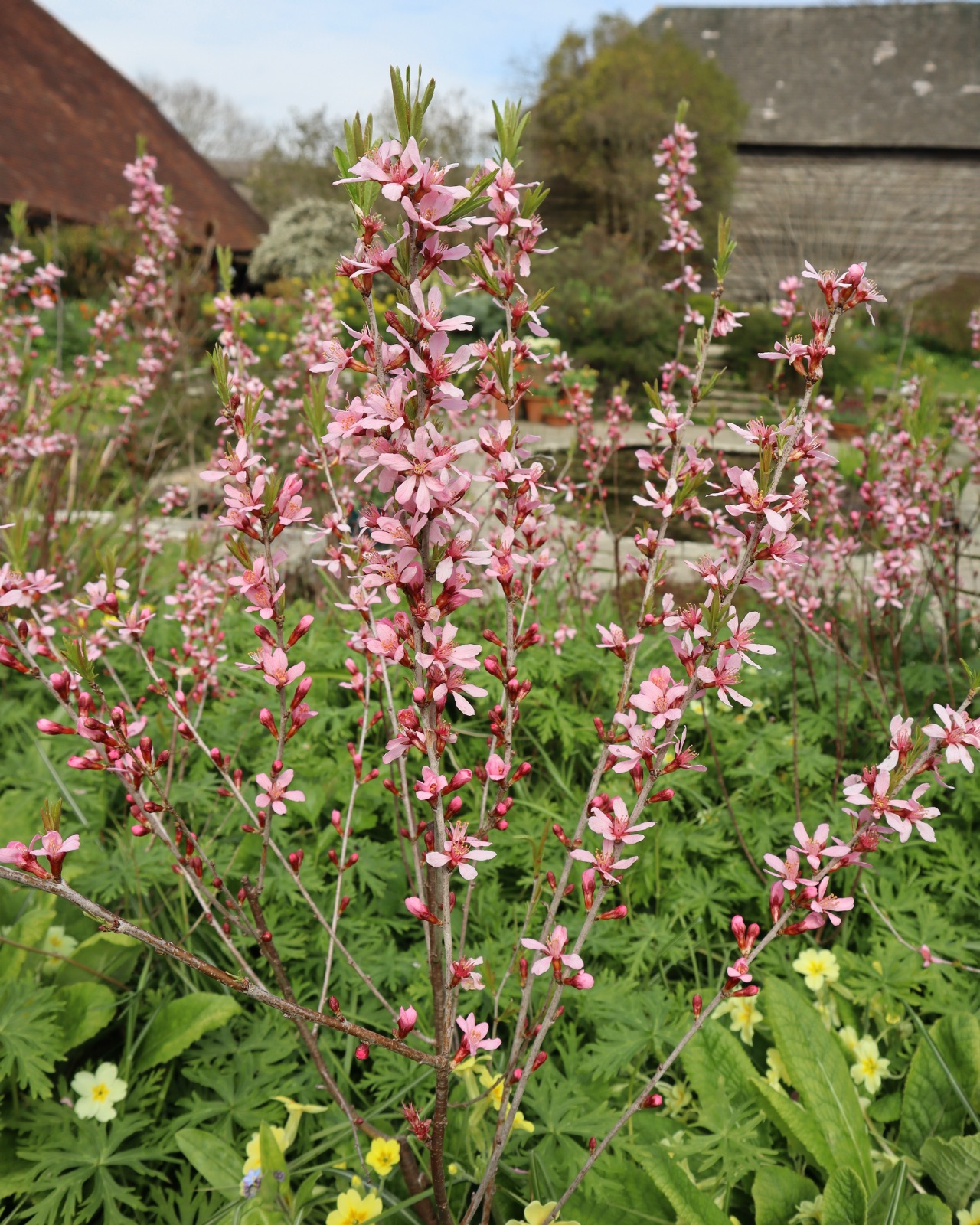Prunus tenella
Credits
Article from Bean's Trees and Shrubs Hardy in the British Isles
Recommended citation
'Prunus tenella' from the website Trees and Shrubs Online (treesandshrubsonline.
Genus
Common Names
- Dwarf Russian Almond
Synonyms
- P. nana (L.) Stokes, not Du Roi
- Amygdalus nanus L.
Other taxa in genus
- Prunus alleghaniensis
- Prunus americana
- Prunus × amygdalo-persica
- Prunus amygdalus
- Prunus angustifolia
- Prunus apetala
- Prunus arabica
- Prunus argentea
- Prunus armeniaca
- Prunus avium
- Prunus besseyi
- Prunus brigantina
- Prunus campanulata
- Prunus canescens
- Prunus cantabrigiensis
- Prunus cerasifera
- Prunus cerasus
- Prunus cocomilia
- Prunus concinna
- Prunus conradinae
- Prunus consociiflora
- Prunus cornuta
- Prunus cuthbertii
- Prunus dasycarpa
- Prunus davidiana
- Prunus × dawyckensis
- Prunus dielsiana
- Prunus domestica
- Prunus dulcis
- Prunus emarginata
- Prunus × fontanesiana
- Prunus fruticosa
- Prunus glandulosa
- Prunus grayana
- Prunus himalaica
- Prunus hortulana
- Prunus humilis
- Prunus ilicifolia
- Prunus incana
- Prunus incisa
- Prunus jacquemontii
- Prunus kansuensis
- Prunus lannesiana
- Prunus laurocerasus
- Prunus litigiosa
- Prunus lusitanica
- Prunus maackii
- Prunus mahaleb
- Prunus maritima
- Prunus maximowiczii
- Prunus microcarpa
- Prunus mira
- Prunus mugus
- Prunus mume
- Prunus nigra
- Prunus nipponica
- Prunus orthosepala
- Prunus padus
- Prunus pensylvanica
- Prunus persica
- Prunus pilosiuscula
- Prunus prostrata
- Prunus pumila
- Prunus rufa
- Prunus salicina
- Prunus sargentii
- Prunus serotina
- Prunus serrula
- Prunus serrulata
- Prunus sibirica
- Prunus × sieboldii
- Prunus simonii
- Prunus sogdiana
- Prunus speciosa
- Prunus spinosa
- Prunus ssiori
- Prunus subcordata
- Prunus subhirtella
- Prunus takesimensis
- Prunus tangutica
- Prunus tomentosa
- Prunus triloba
- Prunus virginiana
- Prunus × yedoensis
A low, deciduous shrub of bushy form 2 to 5 ft high; twigs glabrous. Leaves obovate or oblong, 11⁄2 to 31⁄2 in. long, 1⁄2 to 1 in. wide, saw-toothed, dark glossy green above, pale beneath, glabrous on both surfaces. Flowers one to three on each bud of the previous year’s shoots, rosy red, 1⁄2 in. long, 1⁄2 in. or more in diameter. Fruit like a small almond, 1 in. long, covered with velvety down, not often produced in England. Bot. Mag., t. 161.
Native of S.W. Russia and parts of Central and S.E. Europe; long cultivated in this country (Aiton says since 1683). It is very pretty shrub, flowering abundantly in April, growing well on its own roots, and easily increased by layering. In spite of this it is frequently grafted on plum, and is short-lived in consequence.
P. tenella is a variable species in size, leaf-shape, relative length of sepals to calyx-tube, flower colour, etc. Plants with relatively broad leaves are sometimes distinguished as var. campestris (Bess.) Rehd. and plants with dark pink flowers, of which several clones have been introduced to cultivation, are known collectively as f. gessleriana (Kirchn.) Rehd. Of these the best known in Britain is ‘Fire Hill’, introduced by Lady Martineau from the Balkans; it received an Award of Merit in 1959. In ‘Alba’ the flowers are white.
The plant described by Desfontaines in 1809 as Amygdalus georgica is considered by Rehder to be synonymous with P. tenella. Some Russian botanists recognise it as a distinct species, though the differences adduced are not very convincing.


